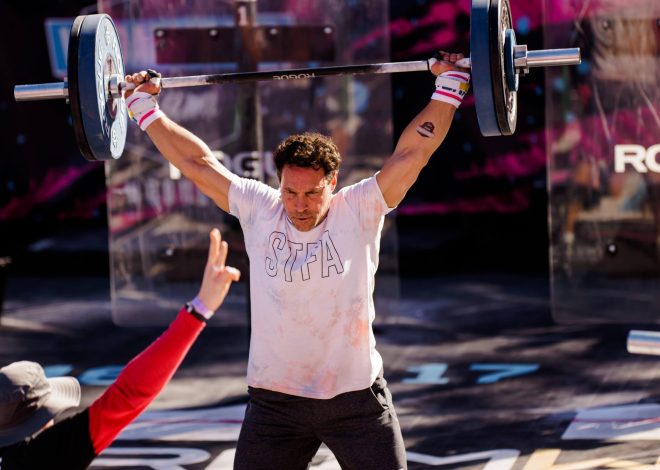
Sports Psychology: Mental Toughness in Athletics
Sports psychology offers valuable insights into developing mental toughness, which plays a crucial role in the success of athletes. Mental toughness refers to the ability to perform consistently and effectively under pressure, overcoming obstacles and distractions that may hinder performance. It is an essential element that separates extraordinary athletes from the rest. In this article, we will explore the various aspects of mental toughness and its importance in athletics.
The Components of Mental Toughness
Mental toughness consists of several key components that contribute to an athlete’s overall performance:
1. Resilience
Resilience is the ability to bounce back from setbacks and adapt to challenging situations. Athletes with high levels of resilience can view failure as an opportunity for growth rather than a setback. They remain focused, motivated, and determined to overcome obstacles.
2. Focus
Focus is about maintaining concentration and attention on the task at hand. Athletes with strong focus can block out distractions and stay fully immersed in their performance. They can narrow their attention to relevant cues, such as technique and strategy, while disregarding irrelevant factors.
3. Confidence
Confidence is the belief in one’s abilities and the trust in their training. Athletes with high levels of confidence are more likely to take risks, push their limits, and perform at their best. Confidence helps athletes overcome self-doubt and maintain a positive mindset, even in the face of adversity.
4. Emotional Control
Emotional control refers to the ability to manage and regulate emotions effectively. Athletes with strong emotional control can prevent negative emotions, such as anger or frustration, from impairing their performance. They are able to stay composed and make rational decisions under pressure.
5. Goal Setting
Goal setting is the process of establishing clear, specific, and achievable objectives. Athletes who set meaningful goals have a sense of purpose and direction. Progress towards these goals can provide motivation and a roadmap for success. Goal setting also helps athletes stay focused on their long-term vision.
The Importance of Mental Toughness in Athletics
Mental toughness is a crucial factor in the success of athletes, regardless of their sport. Here are some reasons why mental toughness is so important:
1. Enhanced Performance
Athletes with high levels of mental toughness consistently perform at their best, particularly in high-pressure situations. They can maintain focus, execute their skills accurately, and adapt to changing circumstances. Mental toughness is often the differentiating factor between winning and losing.
2. Improved Resilience
Resilience allows athletes to bounce back quickly from setbacks and failures, enabling them to maintain a positive mindset and continue striving for success. Mental toughness helps athletes see setbacks as learning opportunities and motivates them to persevere despite obstacles.
3. Effective Stress Management
Competitive sports can induce significant stress and pressure, which can affect an athlete’s performance and overall well-being. Mental toughness enables athletes to effectively manage stress, and minimize its negative impact. They can stay calm, composed, and focused, even in high-stress situations.
4. Enhanced Motivation and Confidence
Mental toughness fosters greater motivation and self-belief in athletes. It helps athletes maintain a positive mindset and stay committed to their goals. The confidence gained from mental toughness enables athletes to take risks, make bold decisions, and perform at their peak.
5. Consistency and Focus
Athletes with strong mental toughness exhibit consistent performance levels and are less prone to distractions. They are better equipped to handle external pressures, maintain concentration, and focus on their performance. Mental toughness allows athletes to stay in the present moment, and fully engage in their sport.
Strategies to Develop Mental Toughness
Developing mental toughness is an ongoing process that athletes can actively work on. Here are some strategies to build mental toughness:
1. Practice Visualization and Mental Imagery
Visualization involves mentally rehearsing successful performance scenarios in vivid detail. Athletes can visualize themselves achieving their goals, overcoming obstacles, and performing at their best. This exercise helps enhance focus, confidence, and resilience.
2. Embrace Failure as a Stepping Stone to Success
Failures are inevitable in sports. Athletes with mental toughness see failures as learning opportunities rather than personal flaws. They use setbacks as motivation to improve and develop resilience. By reframing failure, athletes can bounce back stronger than before.
3. Adopt Positive Self-Talk
Positive self-talk involves replacing negative thoughts with constructive and empowering ones. Athletes can use positive affirmations to boost confidence, increase motivation, and maintain focus. Positive self-talk helps athletes stay mentally strong, even during challenging moments.
4. Set SMART Goals
Setting SMART (Specific, Measurable, Achievable, Relevant, Time-Bound) goals provides athletes with a clear framework and roadmap for success. Breaking down long-term goals into smaller, manageable steps helps athletes maintain focus, stay motivated, and measure progress.
5. Seek Professional Support
Working with a sports psychologist or mental coach can provide athletes with valuable guidance and support in developing mental toughness. These professionals can help athletes identify areas for improvement, develop personalized strategies, and improve overall mental resilience.
Conclusion
Mental toughness is a critical aspect of athletic success, allowing athletes to navigate the challenges, pressures, and setbacks that come with competitive sports. By developing the various components of mental toughness and employing effective strategies, athletes can optimize their performance, enhance resilience, and achieve their goals. Sports psychology provides athletes with valuable tools to cultivate and maintain mental toughness, contributing significantly to their overall success in athletics.


